Directory
- Share
Ruoyun Hui
- Alumni
- China
- 2015 PhD Genetics
- Peterhouse
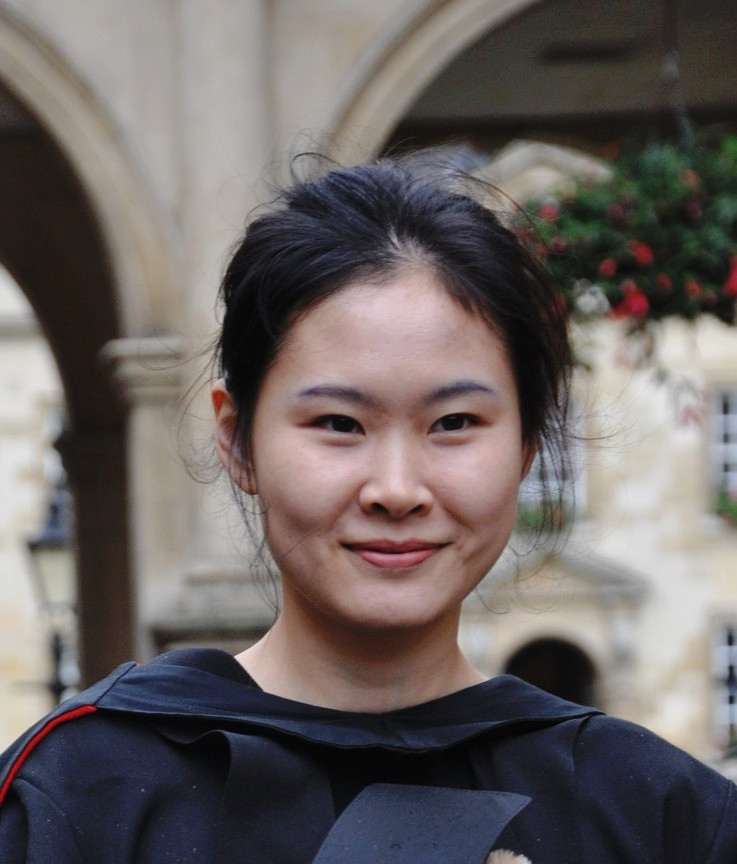
Ruoyun Hui
- Alumni
- China
- 2015 PhD Genetics
- Peterhouse
I was born and raised in the small city of Puyang in central China. I believe that an understanding of the past is essential to interpret what we observe today; as a student of biology, the idea naturally transforms into a fascination with evolutionary history. I am going to pursue a PhD in Genetics under the supervision of Dr. Aylwyn Scally to study the evolution of great apes and other primates. We aim to use whole-genome sequence data to reconstruct demographic and phylogenetic histories. Not only interesting on its own, such knowledge also sets the background for detecting signatures of natural selection in the genome, thus shedding light on human evolution. The methods we develop might be applied to analyze other study systems, addressing various questions in epidemiology, agriculture, cancer progression and so on.Beyond my own research, I also wish to be connected to more people's lives, and to help them realize their courage within. I am constantly seeking ways to integrate my scientific enthusiasm with social responsibility. Hopefully I can explore further along this path with the prestigious community at Gates Cambridge.Interests: hiking, museums of history, science fiction, traditional markets, rural education, peer counseling, people watching.
Previous Education
Chinese Univ Of Hong Kong
Ludwig-Maximilians-Universitat Munchen
Jennifer Ifft
- Alumni
- United States
- 2002 MPhil Land Economy
- Trinity Hall

Jennifer Ifft
- Alumni
- United States
- 2002 MPhil Land Economy
- Trinity Hall
Jennifer Ifft is the Flinchbaugh Agricultural Policy Chair, Associate Professor, and Extension Specialist in Agricultural Policy at Kansas State University. She has an integrated research and extension program that covers policy and regulatory issues that affect the viability of U.S. and Kansas agriculture. Her current projects are in the areas of nontraditional finance, crop insurance, farmland markets and farm labor. She has published on how farm programs and regulations are capitalized into farmland values, farmland value determinants and measurement, farm labor and management, and crop insurance and farm debt. She also regularly publishes in the farm press and works with farm sector policymakers and stakeholders. Before coming to Kansas State University, she was an assistant professor at the Cornell University Charles H. Dyson School of Applied Economics and Management and worked in the Farm Economy Branch of the USDA Economic Research Service. She has a PhD from the University of California - Berkeley, an MPhil from the University of Cambridge and a BS from the University of Illinois at Urbana-Champaign. She grew up on her family’s farm in central Illinois.
Previous Education
University of Illinois at Urbana-Champaign B.S. International Resource and Consumer Econom. 2002
Links
https://www.ageconomics.k-state.edu/directory/faculty_directory/ifft/index.html
https://www.linkedin.com/in/jenniferifft
Tala Jarjour
- Alumni
- Syrian Arab Republic
- 2005 PhD Music
- Trinity Hall
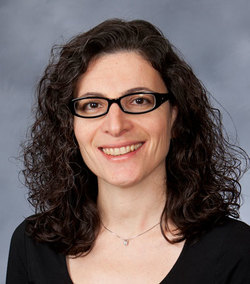
Tala Jarjour
- Alumni
- Syrian Arab Republic
- 2005 PhD Music
- Trinity Hall
Tala Jarjour is a scholar of music, religion and anthropology who studies the Middle East and the Arab world. She has a background in Ethnomusicology, Historical Musicology and violin Performance. She is particularly interested in intersections between politics, culture and religious musics in and from the region – especially Levantine traditions such as Christian and Sufi musics. Her research interests include arts and humanities higher education in the Middle East.
As a Gates Scholar and recipient of the Overseas Research Studentship Award Scheme, Tala wrote her PhD on Syriac chant in the Syrian city of Aleppo. Her past and current research examines emotion, aesthetics, modality, identity, minority and ethno-religiosity, society and performance, survival, cultural heritage, nation and power, peace and war studies, as well as migration and integration.
Dr Jarjour held Assistant Professor positions in music and anthropology at New York University Abu Dhabi and the University of Notre Dame where she was also Faculty Fellow of the Kroc Institute of the Medieval Institute, the Kellogg Institute for International Studies, and the Kroc Institute for International Peace Studies. Previous visiting faculty positions include Yale University’s Music Department and the University of Salzburg. Research positions include Yale University and the Excellence Initiative at the University of Tübingen. She is currently Associate Fellow of Pierson College at Yale and Visiting Research Fellow at King’s College London.
Dr Jarjour has worked with and consulted for a number of academic, nonprofit, as well as private and public sector entities in Europe, the United Kingdom, the United States, and the Middle East. Those include L’Arche, The Clerk’s, Al-Fanar, the Manchester International Festival, the University of Salzburg, and the Vienna Phonogrammarchiv of the Austrian Academy of Sciences. She has appeared on national and international media such as the BBC Radio 3 and CNN International, and has published articles in cultural media in the Arab world, such as Annahar and Assafir weeklies.
Her book Sense and Sadness, Syriac Chant in Aleppo was recently published with Oxford University Press. For a sample of Dr Jarjour’s academic writings, and contact information, see http://talajarjour.academia.edu/
David Jiménez Torres
- Alumni
- Spain
- 2009 PhD Spanish
- Clare College
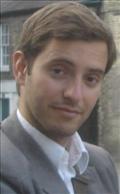
David Jiménez Torres
- Alumni
- Spain
- 2009 PhD Spanish
- Clare College
My interests lie in the crisis in Spanish politics, society and identity that begins after the loss of the last remaining colonies in 1898. They also lie in the ways in which we as Spaniards can form a modern conception of what being Spanish means. This new conception should come from a re-evaluation of the Spanish liberal tradition and of its relationship with those of England and the United States. For all these purposes, Ramiro de Maeztu is ideal: of the generation of intellectuals of 1898, and all the way until the Spanish Civil War, he was the one most interested in the Anglo-Saxon world. He was very concerned with the institutional and cultural problems of Spain, and for a while tried to apply the English model to them. Maeztu can help us understand why Spain devolved towards the gradual breakdown of institutions and the radicalization that led to the civil war, instead of taking the path of progressive and consensual reforms of the Anglo-Saxon model.
Alanna Just
- Alumni
- Canada
- 2016 MPhil Medical Science (Psychiatry)
- Newnham College
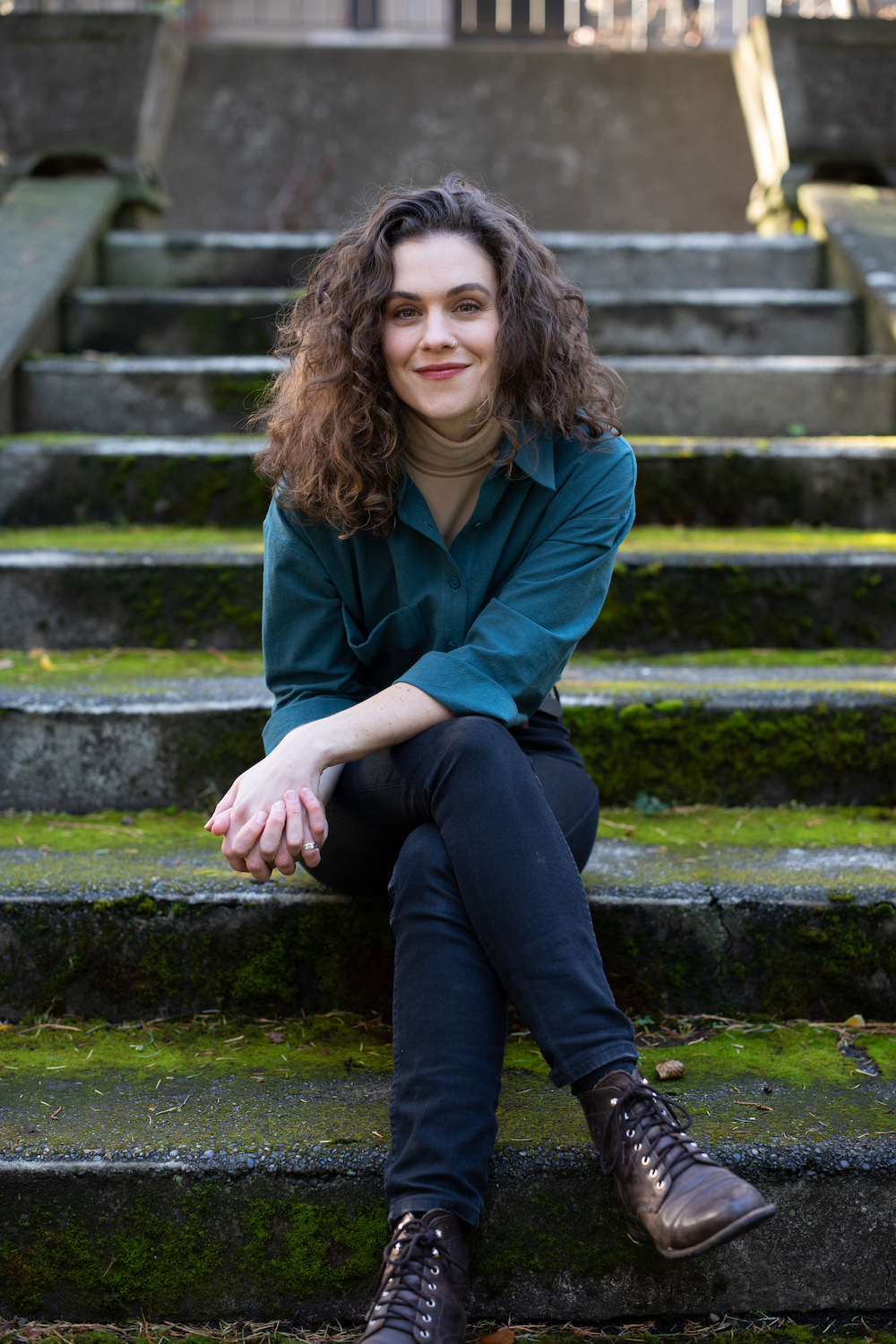
Alanna Just
- Alumni
- Canada
- 2016 MPhil Medical Science (Psychiatry)
- Newnham College
I received my Bachelor's Degree from Quest University Canada where I pursued majors in Neuroscience and Philosophy of Mind. I obtained my MPhil in Medical Science from the University of Cambridge, where I conducted research as a Gates Cambridge Scholar. When I returned to Canada, I obtained my Medical Degree at the University of British Columbia, where I conducted research on women's health, integrated medicine, and end-of-life care.
Between formal educational engagements, I traveled to remote communities in Siberia, guided expeditions in Mongolia for National Geographic, and pilgrimaged in Nepal.
I am currently completing my residency in the Yellowknife Rural Family Medicine program in the NWT on the traditional lands of the Yellowknives Dene First Nation. My interests include medical ethics, wilderness medicine, integrative medicine, and moments of vulnerability.
Previous Education
Quest University Canada
Tae-Yeoun Keum
- Alumni
- Korea, Republic of
- 2008 MPhil Political Thought & Intellectual History
- Gonville and Caius College

Tae-Yeoun Keum
- Alumni
- Korea, Republic of
- 2008 MPhil Political Thought & Intellectual History
- Gonville and Caius College
I was born in South Korea and grew up in the Philippines. I chose to attend college in the United States and specifically Yale for the quality of the liberal arts education offered in these places, and, by a similar line of reasoning, chose to major in the Humanities. Like many a hero (or antihero) of the humanistic tradition, I wandered through several disciplines, areas and eras of interest, but I found myself returning time and again to the works of Plato. At Cambridge, I hope to continue reading Plato, focusing this time on Plato’s use of stories and myth within the context of his political philosophy, as well as the context of intellectual history at large. The issue at stake - namely, the relationship between stories and the communities that hear them - is one that is particularly dear to my heart. I hope, one day, to share my love of reading and writing on a global scale, beginning with the Cambridge community.
Ryan Lash
- Alumni
- United States
- 2010 MPhil Anglo-Saxon, Norse and Celtic
- Gonville and Caius College
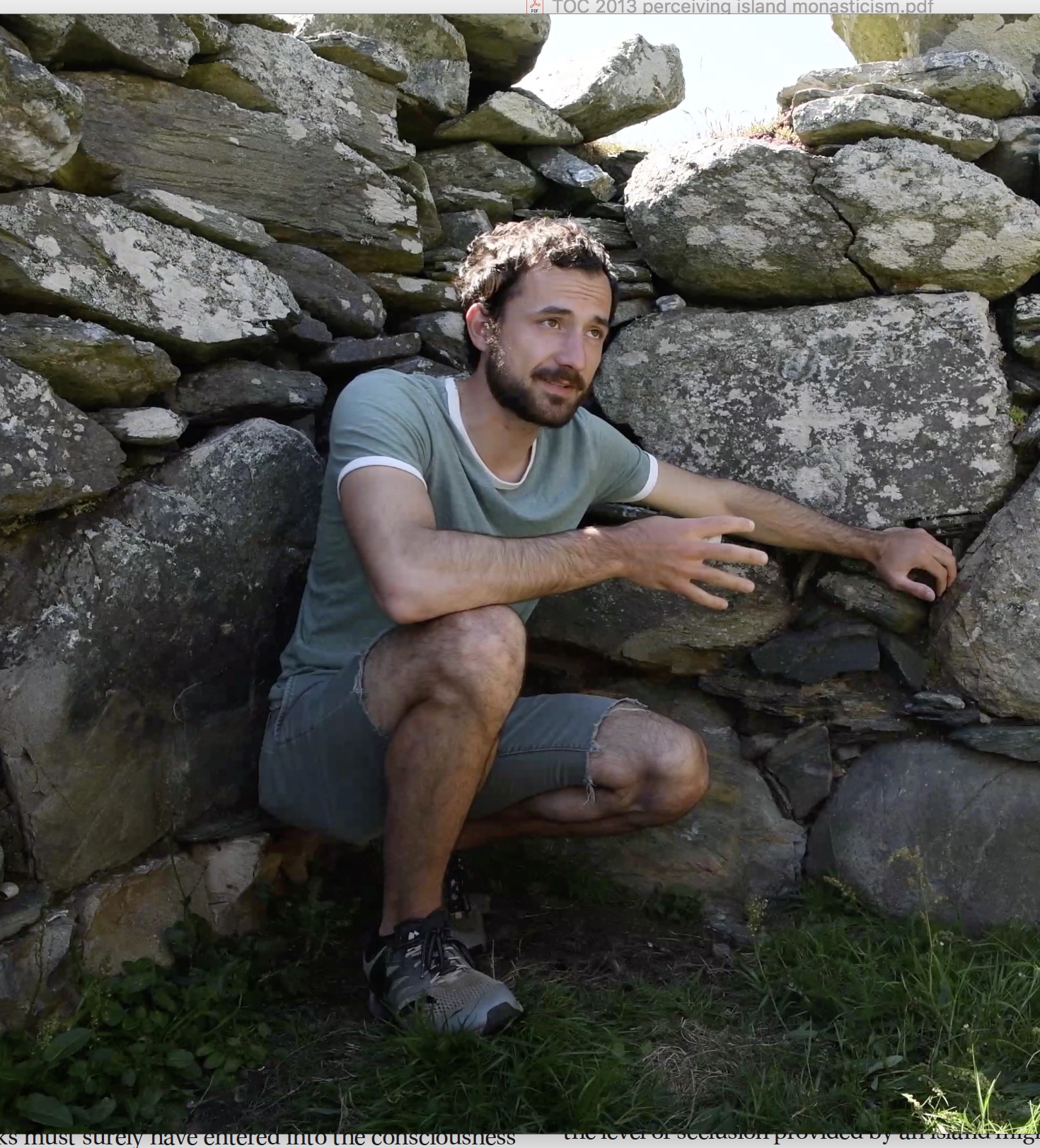
Ryan Lash
- Alumni
- United States
- 2010 MPhil Anglo-Saxon, Norse and Celtic
- Gonville and Caius College
My research examines how multi-sensory encounters with landscapes shape people’s perceptions of heritage, belonging, and social difference. As a member of the Cultural Landscapes of the Irish Coast (CLIC) Project since 2007, I have undertaken archaeological and ethnographic research on the islands of Inishark and Inishbofin, Co. Galway, on topics ranging from early medieval monasticism and pilgrimage traditions, pastoralism, heritage tourism, and sustainability. Myself and colleagues have published research results in Antiquity, Medieval Archaeology, The Journal of Social Archaeology, and the Routledge Handbook of Sensory Archaeology.
As a postdoctoral fellow at Notre Dame, I am working with Dr. Ian Kuijt on the book project Faith Along the Water, which traces the expansion and development of monastic settlements across the seascape of Connemara c. 650-1300 CE.
Previous Education
University of Notre Dame
William Liechty
- Alumni
- United States
- 2007 MPhil Chemical Engineering
- Wolfson College

William Liechty
- Alumni
- United States
- 2007 MPhil Chemical Engineering
- Wolfson College
I am tremendously excited to study at Cambridge as a Gates Scholar. I'm grateful to be in a place with such rich academic tradition and with so many brilliant minds. I'll be working with Dr. Nigel Slater in the Cambridge Unit for Bioscience Engineering (CUBE) studying responsive biopolymers.
Aditi Malik
- Alumni
- India
- 2010 MPhil International Relations
- Newnham College
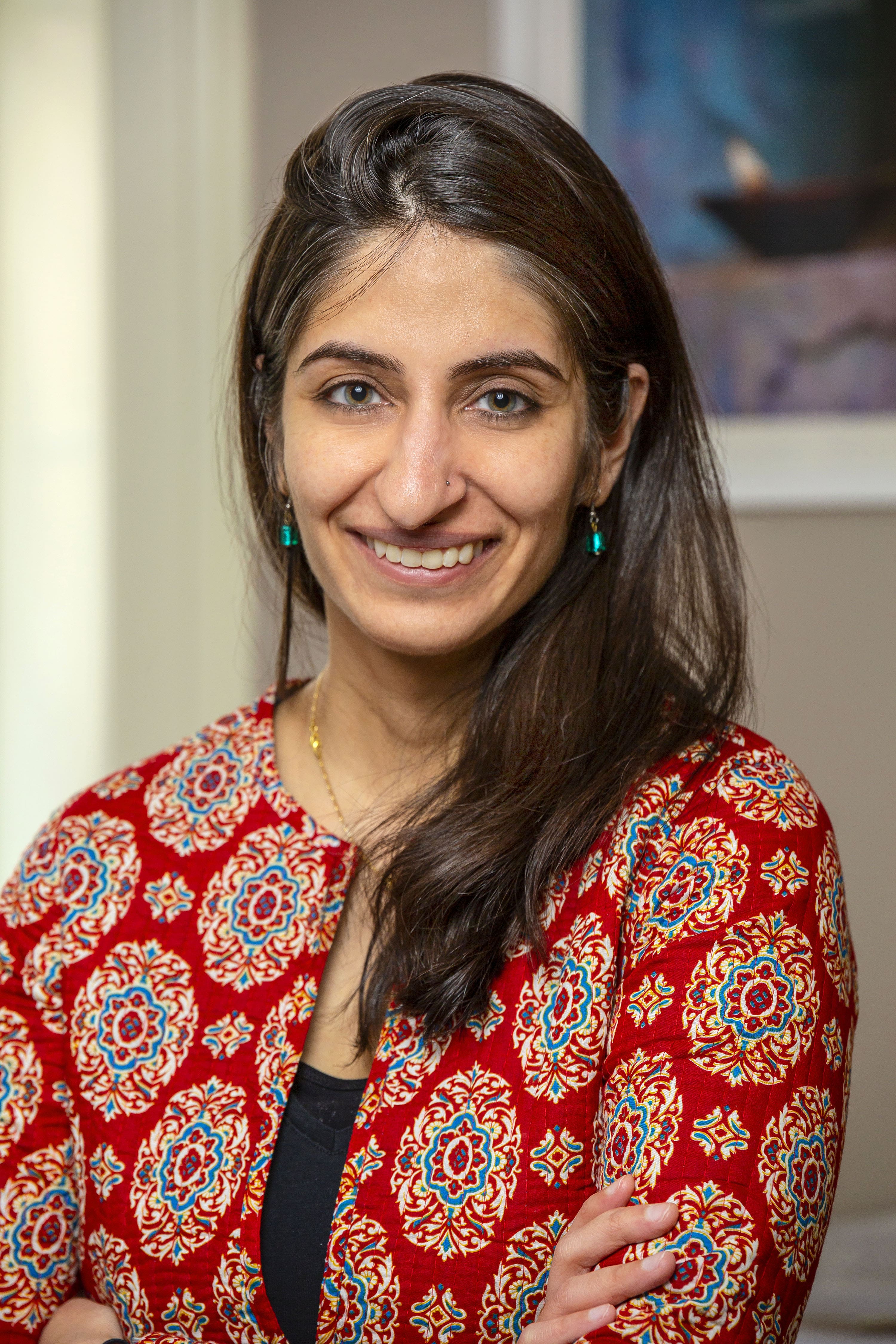
Aditi Malik
- Alumni
- India
- 2010 MPhil International Relations
- Newnham College
I am Associate Professor of Political Science at the College of the Holy Cross in Massachusetts. I earned my PhD in Political Science from Northwestern University. My research interests include the study of political violence, gender-based violence, and social movements and contentious politics,. Much of my work involves cross-regional comparisons of African and South Asian cases. I have conducted field research on various aspects of conflict and conflict-resolution in Kenya, Rwanda, South Africa, Cambodia, India, and Nepal. My first book, Playing with Fire: Parties and Political Violence in Kenya and India was published by Cambridge University Press in 2024. Drawing on a cross-regional comparison of Kenya and India along with subnational comparisons in the two countries, this book develops a novel theory about the relationship between political parties and conflict.
Links
https://www.aditimalik.net
https://www.linkedin.com/in/aditi-malik-b99880252
Christine Mbai
- Alumni
- Kenya
- 2016 MPhil Architecture and Urban Studies
- Wolfson College
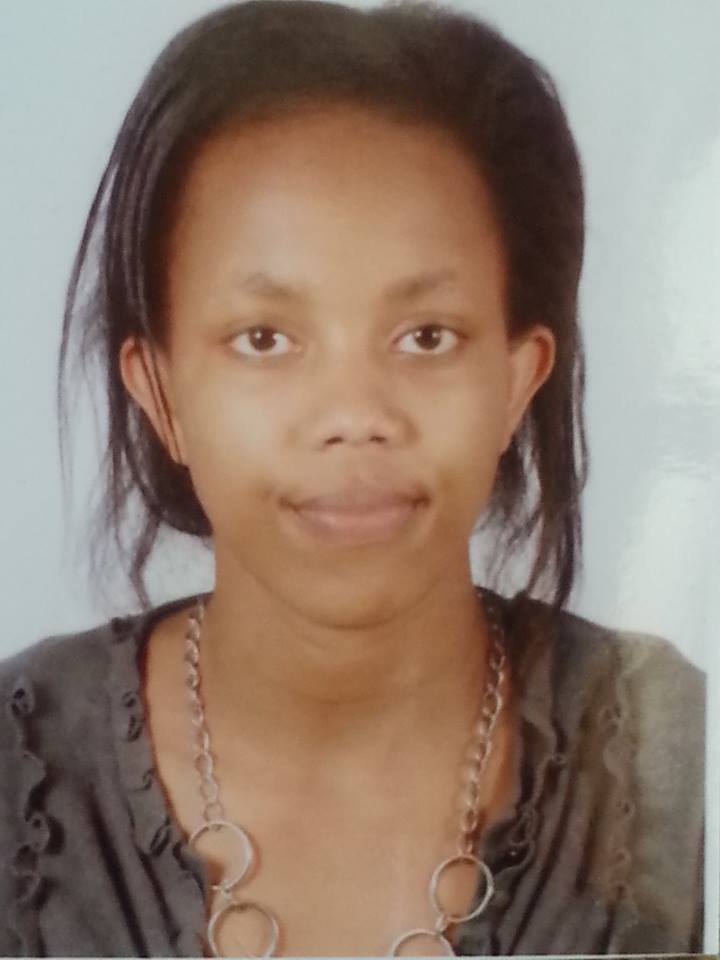
Christine Mbai
- Alumni
- Kenya
- 2016 MPhil Architecture and Urban Studies
- Wolfson College
My research at the University of Cambridge will focus on climate responsive design attributes in the tropics, Zanzibar in particular. With continued climate change, buildings will need to mitigate and adapt without necessarily increasing their energy consumption. Correlation between design parameters and material specifications with the internal environments architects create, in terms of human comfort is fundamental in achieving habitable conditions in buildings, without mechanical systems, most of which have high energy loads and carbon emissions contributing to global warming. I will investigate the dichotomies of embracing new technologies and traditional constructions in a bid to postulate a low carbon contemporary architecture addressing occupant comfort, health and associated productivity. I am indeed grateful to continue being part of the Gates Cambridge community.
Previous Education
University of Nairobi
University of Cambridge
Aditi Mukherji
- Alumni
- India
- 2003 PhD Geography
- Fitzwilliam College

Aditi Mukherji
- Alumni
- India
- 2003 PhD Geography
- Fitzwilliam College
Maio Nagashima
- Scholar
- Japan
- 2022 PhD Anglo-Saxon, Norse and Celtic
- St John's College
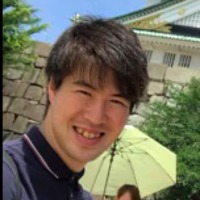
Maio Nagashima
- Scholar
- Japan
- 2022 PhD Anglo-Saxon, Norse and Celtic
- St John's College
Maio NAGASHIMA (he/him) is a PhD candidate at the Department of Anglo-Saxon, Norse and Celtic, the University of Cambridge. His chief interests lie in the European intellectual milieu in which medieval Irish adaptations of classical Latin epics were produced. His doctoral research explores the manuscript tradition of In Cath Catharda, the late 12th- or early 13th-century Irish adaptation of Lucan’s Bellum Civile, and the influence of the contemporaenous Lucanian exegesis upon the production and transmission of the vernacular work. He has recently contributed a chapter to Clarke, M., et al. (eds.), Classical Antiquity and Medieval Ireland (London, Bloomsbury: 2024).
Antonia Netzl
- Alumni
- Austria
- 2022 PhD Zoology
- Trinity Hall
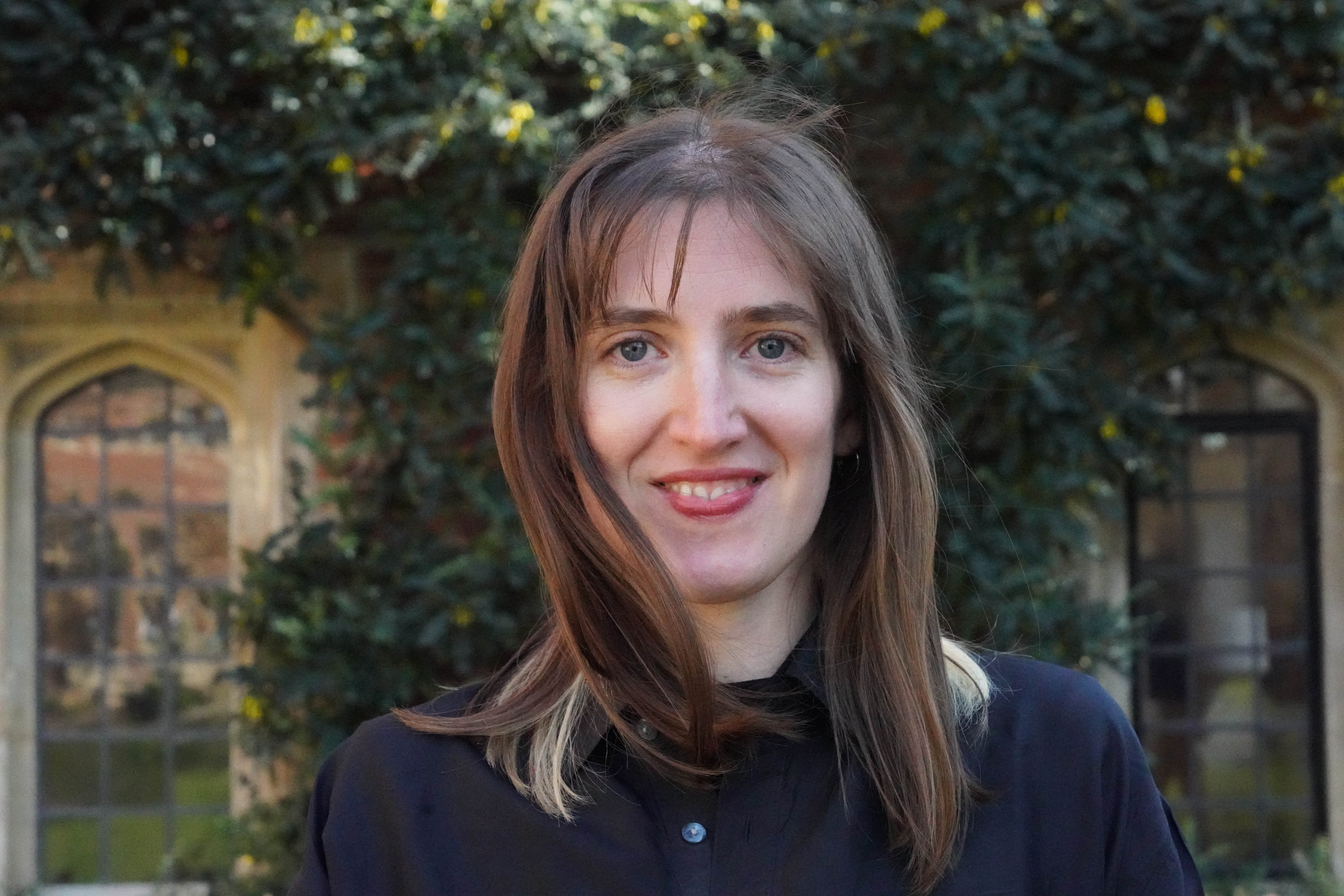
Antonia Netzl
- Alumni
- Austria
- 2022 PhD Zoology
- Trinity Hall
I grew up and obtained my BSc in Molecular Bioscience in Austria, a country where education is free. Realising the privilege of that, I am a strong advocate for just access to and distribution of resources, including the research produced in world-leading institutions such as Cambridge University. I want to use the opportunities that have been given to me to the benefit of other people. During my master’s degree in Systems Biology at the University of Heidelberg, I found in infectious disease research a scientific field which allows me to do that. In my PhD, I will use a computational model of the humoral immune response to investigate how prior and novel immunity interact upon exposure to evolving pathogens to improve vaccination strategies against SARS-CoV-2 and influenza. The past years demonstrated vaccines as the most potent tool for virus disease management, but more so that global crises cannot be thought in isolation. The COVID-19 pandemic took a disproportionate toll on the Global South, low-income households, and women, reinforcing traditional gender roles and thereby the dual burden of women. With my PhD work I aim to contribute to alleviating this toll.
Chioma Ngonadi
- Alumni
- Nigeria
- 2015 PhD Archaeology
- King's College
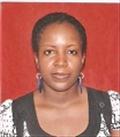
Chioma Ngonadi
- Alumni
- Nigeria
- 2015 PhD Archaeology
- King's College
I was born and raised in Anambra State, southeastern Nigeria and bagged a First Class Honors in Archaeology from University of Nigeria, Nsukka. In 2010, I completed my MA in Archaeology from the University of Dar es Salaam, Tanzania funded by SIDA/SAREC through African Archaeology Network. My MA research was on a comparative study of the pottery from sites in coastal Tanzania. I focused on Mwangia pottery, a variant of Early Iron Working pottery (EIW) and compared it to the subsequent Triangular Incised Wares (TIW) tradition. Analysis of pottery showed that TIW has closer cultural affinities to Mwangia than the preceding traditions (Limbo and Kwale). My love for archaeology has taken me to Comoros Island, Uganda and Tanzania. At Cambridge, my PhD thesis seeks to examine the origin and development of farming over the longue duree in Lejja,southeastern Nigeria. Through ethnography, survey and excavation, my study will establish and outline a cultural sequence with focus on the last 3,000 years and thus analyze broad scale changes in agricultural practices of these communities over this period. I am excited to join the Gates community and I look forward to developing my skills and knowledge in order to have a lasting career in Archaeology.INTERESTS: Reading, writing, volunteering, watching football, interesting movies, scrabble, visiting archaeological sites and museums.
Previous Education
UNIVERSITY OF NIGERIA, NSUKKA
UNIVERSITY OF DAR ES SALAAM
Stephen Pepper
- Alumni
- United States
- 2018 PhD Divinity
- St John's College
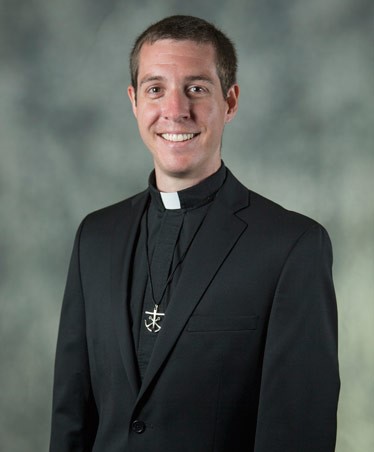
Stephen Pepper
- Alumni
- United States
- 2018 PhD Divinity
- St John's College
A question overtook me during a drive through the Pennsylvania Wilds in 2015. How might people in life situations of “exile” have access to theology and literature itself conceived out of exile? Thus, a passion for Dante that had begun during my first year of seminary at the University of Notre Dame developed into a weekly Dante study group at my local prison in northeast PA, and through my exposure to the lives and hopes of these inmates over the course of two years, I began to see how Dante could be used to explore the fundamental structures of and possibilities for human unity, even in the midst of fragmentation and isolation. My research in the Faculty of Divinity will formalize this exploration by tracing the theological and metaphysical participation traditions in which Dante stands, delimiting his understanding of the inter-relationality among divine and human nature(s), and applying the systematic consequents of his theology of participation to new ways of thinking about social modalities, wherein pluralities of valuation and reasoning may cohere to address the anomies of our own day. As a Roman Catholic priest from a military family in Alabama, I am humbled to be part of the Gates community and eager to gain from it a deepening respect for the versatility of human goodness.
Previous Education
Seton Hall University
University of Notre Dame
Erin Plisco
- Alumni
- United States
- 2013 MMus Choral Studies
- Trinity College
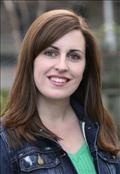
Erin Plisco
- Alumni
- United States
- 2013 MMus Choral Studies
- Trinity College
For as long as I can remember, my life has been enriched by the study and performance of music. For the past three years I have directed a large high school choral music program in North Carolina. During that time, I have seen the power of choral music to stimulate and transform others. I am dedicated to inspiring my students’ realization of this transformative power, and endeavor to illustrate that music is an improvement on life itself. The M.Mus. in Choral Studies at Cambridge will provide a unique intellectual and musical training—one that will allow me to expand my reach to the global community. Cambridge offers a diverse approach to training choral musicians that will provide me with the experience necessary to more effectively work with students on a global level and to make music of the highest caliber. I am excited to immerse myself in a culture that places such a high value on choral music and music education, steeped in a timeless tradition that has thrived for centuries.
Andrey Poletayev
- Alumni
- Russian Federation
- 2011 MPhil Physics
- Darwin College
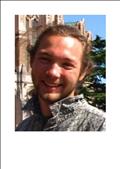
Andrey Poletayev
- Alumni
- Russian Federation
- 2011 MPhil Physics
- Darwin College
In addition to all the others, the challenge of generating accessible and ecologically sustainable energy is paramount in today's world. Developing economically scalable solar cell technology is the ideal answer to this challenge. This year, I plan on studying crystals of small organic molecules in the hope of creating a new, efficient and cheap photovoltaic. I want to take the best of both currently active areas of solar energy research: the stability and efficiency of traditional crystal technology, and the low cost and flexibility of organics.
Michelle Quay
- Alumni
- United States
- 2013 PhD Asian and Middle Eastern Studies
- Pembroke College
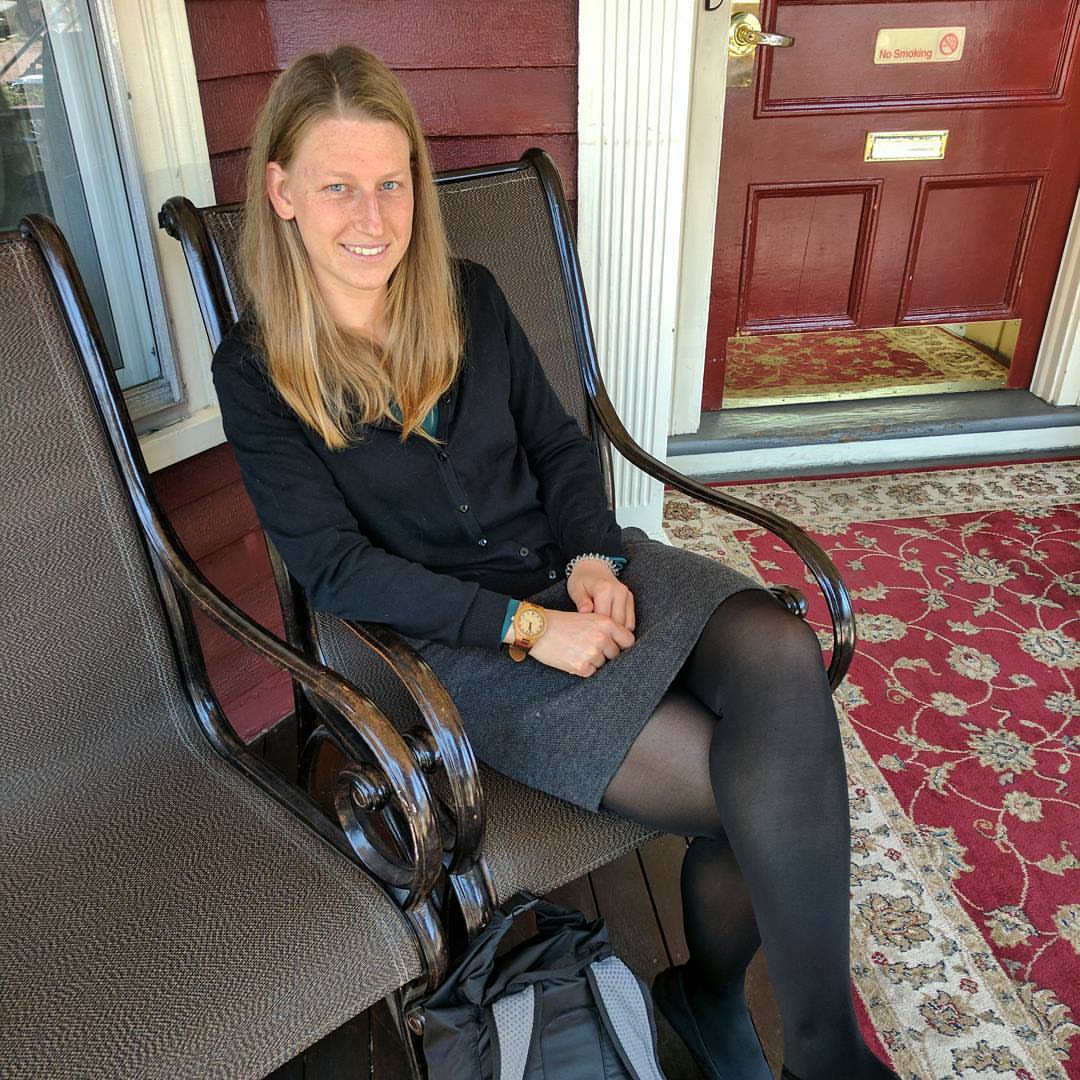
Michelle Quay
- Alumni
- United States
- 2013 PhD Asian and Middle Eastern Studies
- Pembroke College
After graduating from UCLA with an MA in Iranian Studies, I will be heading to Cambridge to work on Premodern Persian Literature. With my time as PhD student in Cambridge, I hope to examine the surprisingly diverse body of Persian and Arabic Medieval texts that deal with women's positions and capabilities within the field of Islamic mysticism, or Sufism. I am particularly interested in female "saint"-type figures (awliya), who find some parallels in the Christian tradition. I began studying Persian informally in 2005 and formally in 2007.








